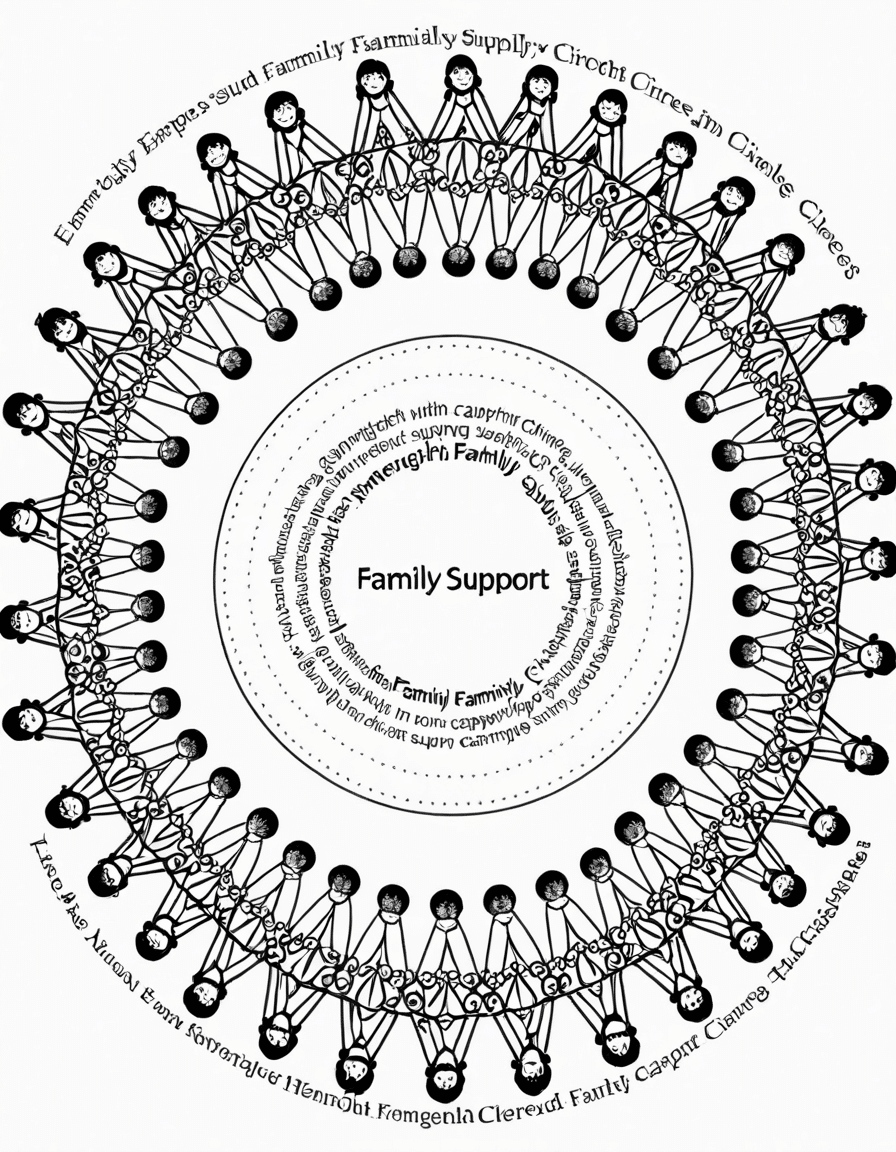Addiction doesn’t just change one person’s life; it sends shockwaves through families, changing how they interact, communicate, and cope with the chaos. The empirical evidence shows that families touched by addiction face emotional, physical, and financial challenges that can feel insurmountable. According to research published in the Journal of Substance Abuse Treatment, over half of families affected by addiction report significant distress and a loss of familial cohesion. This pain doesn’t just vanish; it lingers, reshaping connection and community in ways that often go unnoticed.
But here’s the catch: families can rebuild. Through understanding these impacts, parents and guardians can find allies, resources, and paths toward healing. Just like the famed rock band, The Who, sang about “My Generation,” it’s crucial for families to recognize that they aren’t alone in their struggles, and that every experience can lead to resilience.

## Empirically Examining Addiction’s Impact on Families
When addiction enters a home, it can feel like a storm that uproots the foundation. Family dynamics shift, and relationships become fragile. A study illuminated that heightened occurrences of anxiety and depression arise in families battling addiction, creating environments of fear and misunderstanding. This ongoing pressure resembles chronic stress, which can wreak havoc on both mental and physical health.
Children in these families often face additional burdens. They grow up too fast, finding themselves stepping in to fill roles left vacant by a parent or sibling’s addiction. For example, a child may become the primary caretaker of younger siblings, leading to potential developmental issues (and who wouldn’t be worried about that?).
Healing begins with understanding. Only by recognizing the layers of implication can families embark on their own journey to wellness. By leaning on organizations like Mothers Against Addiction, families can find resources, support, and connection that proactively dismantles isolation.

## Empirically Assessing Addiction’s Impact on Families
Families of individuals grappling with addiction often experience a surge in emotional distress. Take caregivers of those with opioid use disorder, for instance. They bear the weight of incessant worry about potential overdoses, resulting in anxiety and depression that can feel overwhelming.
Tension builds when addiction cloaks the house with shadowy silence. Families often resort to avoidance, stuffing feelings in a box that quickly overflows. Studies emphasize that this pattern of conflict can escalate, leading to an inability to address the root problems at hand.
Financial hardships can become unbearable. According to the Centre for Addiction and Mental Health, families may experience an average income drop of 30% due to lost jobs and unexpected expenses like rehab and therapy. When bills stack up alongside sleepless nights, the pressure mounts.
Empirical research shows that addiction forces familial roles to shift drastically. For example, siblings may find themselves stepping into adult roles purely out of necessity. This can lead to unhealthy development challenges and strained sibling connections, starting a cycle of conflict and resentment.
Addiction doesn’t just impact one generation; it can echo through time. Extensive studies show that growing up with addicted parents increases the likelihood of children developing addiction problems themselves. This vicious cycle can chain generations, leaving emotional wreckage in its wake.
As addiction takes hold, family members experience a profound sense of neglect. Emotional needs are often placed on the back burner as the addicted individual prioritizes their substance use. This neglect can manifest as emotional abandonment, leaving loved ones feeling isolated in their own homes.
Thankfully, there’s hope. Families often discover a newfound resilience as they face the challenges head-on. Programs like Al-Anon cultivate a sense of community that helps families connect with others enduring similar trials, underscoring that no one is isolated in their hardships.
Innovative Pathways for Family Healing
Recovery entails more than individual effort. Families must be empowered and informed to navigate the lasting effects of addiction. Innovative therapy techniques, such as family systems therapy, focus on the intricate connections within familial relationships. By addressing these connections, families can foster a supportive environment that nurtures recovery.
Technology has expanded healing options as well. Virtual support groups allow families to share their narratives regardless of location, ensuring that no one feels alone in their battle against addiction. Blended recovery approaches, incorporating traditional therapy elements along with digital support mechanisms, have shown promise. Research indicates that this combination yields positive outcomes for family recovery.
By approaching addiction from a holistic perspective, we pave the way for collective family healing. Together, we can nurture understanding and empathy, shedding light on the darkened paths that addiction often leaves behind.
At Mothers Against Addiction, we’re dedicated to fostering connections that heal. Through education and support, families can reclaim their strength. Feel free to check out our resources to see how you can collect knowledge and connection, cultivating a nurturing environment for everyone involved.
Let’s walk this journey together, fostering not only recovery but thriving futures for families touched by addiction. Because after all, resilience grows in the cracks, and there’s always light on the other side.
empirically Exploring Addiction’s Impact on Families
The Data Behind Addiction
Understanding addiction, and its impact on families, is crucial for developing effective interventions. It’s interesting to note that empirical research shows the social and economic implications of addiction can ripple through families, leading to significant emotional burden. One might think of insurance like SR 22 insurance that is pivotal when someone faces legal issues stemming from addiction; this kind of information helps clarify financial barriers many families face. Often, these obstacles can fortify the cycle of addiction, making support systems such as Mothers Against even more essential.
Interesting Connections
Have you heard of the Blueberry Muffin strain? While not usually linked with family dynamics, different substances have nuanced effects on individuals and their relationships. Understanding these substances empirically helps family members grasp addiction’s medical and psychological aspects, providing them with the knowledge to support their loved ones effectively. On the flip side, families need to learn practical strategies, like knowing How To stop Yourself From Throwing up, in case addiction leads to physical complications.
Seeking Solutions
In the journey of healing, families can benefit immensely from setting clear goals, adopting methods like SMART Objectives. When everyone is on the same page, it creates a united front against the struggles posed by addiction. A touch of humor can lighten the mood in tough discussions—ever thought of asking someone How To kill You? Of course, it’s tongue-in-cheek, but it hints at the desperation some may feel when trying to cope with a loved one’s addiction.
The Broader Picture
Families often experience confusion over property and financial arrangements impacting their loved one’s situation, which is relevant to concepts like fee simple in estate ownership. This lack of clarity can enhance stress during already tough times. And just as characters in the story of Pookie And Jett highlight the intertwined lives affected by addiction, families too play vital roles as support systems, often navigating the stormy seas of this harrowing experience together. Ultimately, the need for empirical research to understand and aid families dealing with addiction has never been clearer.
When we compile these facts collectively, it becomes evident that gaining knowledge on addiction can empower families, offering them the tools to adapt and survive this significant challenge.




























